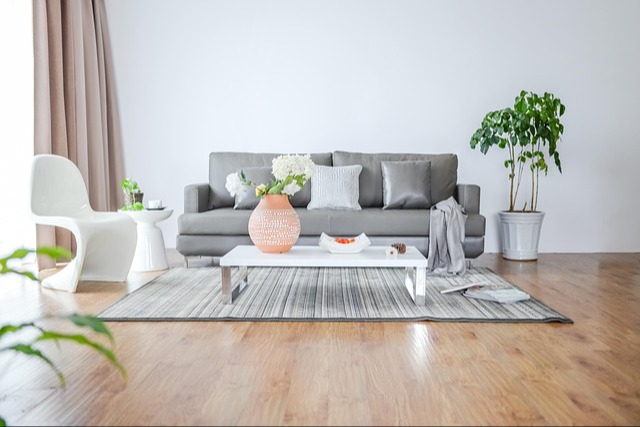Self-care isn’t just about bubble baths and Instagram-worthy smoothie bowls—though those can be nice too. At its core, self-care is about meeting your basic needs so you can function and feel your best. If you’re struggling to keep up with the essentials—washing up, getting dressed, eating regularly, or catching enough Z’s—you’re not alone. Life throws curveballs, whether it’s stress, exhaustion, or just the chaos of daily grind. But here’s the good news: small, intentional steps can make a world of difference. Let’s break down how to build a self-care routine that’s realistic, sustainable, and actually works for you.
Start with the basics: Hydration and nutrition
You’ve probably heard it a million times, but water and food are the foundation of everything. If you’re running on caffeine and takeout, your body and mind are going to feel it. But here’s the thing—nourishing yourself doesn’t have to be complicated. Keep a water bottle nearby and sip throughout the day (bonus points if it’s one with time markers to keep you on track). When it comes to meals, think simple: pre-cut veggies, protein bars, or batch-cooked grains can be lifesavers when you’re too wiped to cook. And if all else fails? A spoonful of peanut butter and a banana still counts as fuel. The goal isn’t perfection; it’s making sure you’re not running on empty.
Sleep: The ultimate reset button
Skimping on sleep is like borrowing energy from a loan shark—it always comes back to bite you. But between work, family, and late-night scrolling, quality shut-eye can feel impossible. Start small: set a “no screens” rule 30 minutes before bed (yes, that includes TikTok). Swap your phone for a book or some chill music. If your mind races at night, try jotting down worries in a notebook to “park” them until morning. And if you’re really struggling, even a 20-minute power nap can help reboot your system. Think of sleep as your body’s way of hitting the refresh button—you’ll wake up clearer, calmer, and way more equipped to handle whatever the day throws at you.
Movement that doesn’t feel like punishment
Exercise shouldn’t be a chore—it’s about finding ways to move that actually feel good. Hate the gym? No problem. Dance in your living room, take a walk while listening to a podcast, or stretch while watching TV. The key is to focus on how movement makes you feel, not how many calories it burns. Even a five-minute stretch break can loosen stiff muscles and clear mental fog. If motivation’s low, buddy up with a friend for accountability, or reward yourself afterward with something enjoyable (hello, post-workout smoothie). The goal? To remind your body it’s capable of more than just sitting at a desk or couch-surfing.
Boundaries: The unsung hero of self-care
Saying “no” can feel selfish, but it’s one of the most powerful ways to protect your energy. Overcommitting leads to burnout, resentment, and a serious lack of “you time.” Start by identifying what drains you—maybe it’s endless group chats, last-minute favors, or toxic relationships. Then, practice small refusals: “I can’t take that on right now” or “I need some downtime tonight.” You don’t owe anyone an apology for prioritizing your well-being. Think of boundaries like a force field—they keep the good stuff in and the chaos out.
The magic of micro-moments
Self-care doesn’t require hours of free time. It’s about sneaking in tiny acts of kindness for yourself throughout the day. Pause to take three deep breaths before a meeting. Savor your coffee instead of chugging it. Put on a song that lifts your mood. These “micro-moments” add up, creating little pockets of calm in a hectic schedule. The more you practice, the more natural it becomes to check in with yourself and ask, “What do I need right now?”
Digital detox: Unplug to recharge
Constant notifications are like tiny dopamine hits that keep us hooked but leave us drained. Try designating tech-free zones—maybe meals, the first hour of your day, or your bedroom. Turn off non-essential alerts to minimize distractions. If social media leaves you feeling blah, curate your feed to include uplifting accounts (and mute the ones that don’t). Even a short break can help reset your focus and reduce that frazzled, overstimulated feeling.
Connect with your people
Humans are wired for connection, but meaningful interactions often get lost in busy schedules. Reach out to someone who makes you laugh, vent to a trusted friend, or join a group with shared interests. If socializing feels overwhelming, even a quick text exchange can remind you you’re not alone. Quality over quantity is the name of the game here—it’s about filling your cup, not your calendar.
Embrace the power of “good enough”
Perfectionism is the enemy of self-care. Some days, brushing your teeth for 30 seconds is better than not at all. A microwaved meal beats skipping dinner. The laundry can wait if you need rest. Self-care isn’t about checking boxes; it’s about doing what you can with the energy you have. Give yourself permission to be imperfect—progress, not perfection, is what counts.
Self-care isn’t a luxury—it’s maintenance. By focusing on small, doable steps, you build habits that support your physical and mental health without overwhelming your schedule. The best part? You don’t need a fancy routine or expensive products—just a commitment to treating yourself with the same kindness you’d offer a friend. Start where you are, use what you have, and remember: even the tiniest acts of self-care add up to big changes over time.
























